Understanding Water Hardness: How Soft, Hard, and Distilled Water Affect Your Haircare Routine
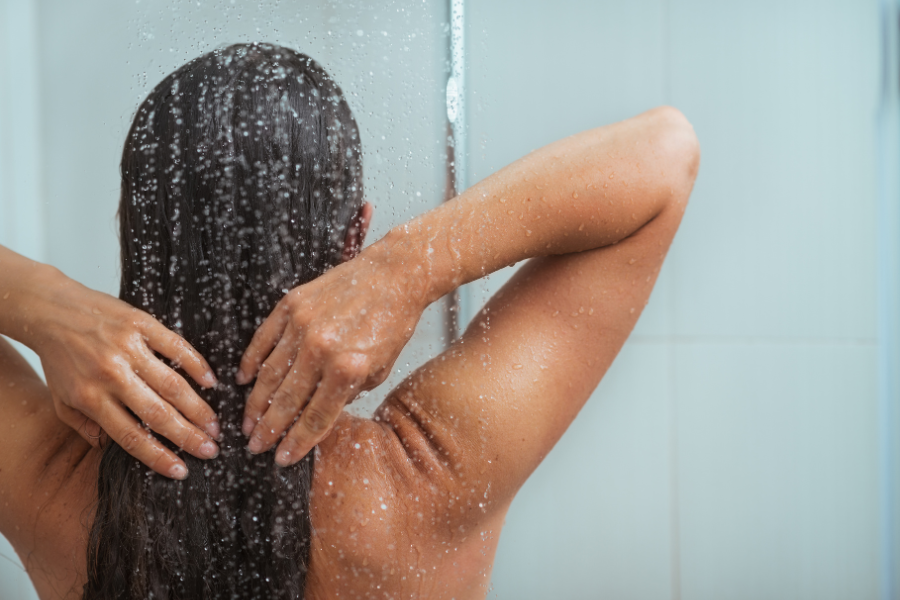
Have you ever shampooed your hair while on vacation and felt a drastic difference in the way your hair feels? It is probably due to the water. Water quality plays a pivotal role in many aspects of daily life, affecting everything from personal health and hygiene to the longevity of household plumbing and the efficiency of appliances. It also significantly impacts haircare, and we don’t talk about it enough. Understanding the difference between hard and soft water can illuminate why certain hair problems persist and help find practical solutions.
What Does It Mean When Water is Soft or Hard?
Water hardness refers to the concentration of certain dissolved minerals in the water. When we talk about hard water, we're referring to water that contains a high concentration of minerals, particularly calcium and magnesium. This type of water can lead to various issues around the home, including scale buildup inside pipes, water heaters, boilers, and fixtures. It can also significantly affect hair health, leaving it feeling rough and dull.
Conversely, soft water has a low concentration of these hard minerals and is treated only to contain sodium ions. Soft water is much gentler on appliances, skin, and hair, helping maintain moisture and reduce soap residue.
How Water Becomes Hard or Soft
Water hardness originates from the water's journey through the water cycle. As rainwater falls and seeps into the ground, it picks up minerals from the soil and rocks, primarily calcium and magnesium. The level of these minerals in the water depends mainly on the geographical and geological conditions of the region.
In contrast, soft water often occurs naturally in areas where the bedrock does not readily dissolve into the water. Some areas artificially soften the water by exchanging the minerals calcium and magnesium for sodium or potassium ions.
Geographically, the hardness of water varies widely across the globe and even within individual countries, primarily due to the differing nature of the terrain and the types of rocks and soil through which water travels. For instance:
- In the United States, hard water is abundant in the Midwest and parts of the Southwest, with high concentrations of calcium and magnesium in the groundwater. In contrast, the Pacific Northwest, parts of the Northeast, and the southeastern states often have softer water thanks to their geological conditions.
- In Europe, countries like the United Kingdom and Germany experience varying degrees of water hardness depending on the region. Southern England, for example, has some of the hardest water due to its chalk and limestone geology, whereas Scotland typically has soft water.
- Globally, areas like parts of India, China, and Australia also demonstrate significant variations in water hardness due to their diverse geological landscapes.
Seasonal changes can also influence water's hardness or softness, though the extent and nature of these effects can vary significantly depending on the region. During seasons with heavy rainfall or snow, water can become softer as the increased volume of water dilutes the concentration of minerals like calcium and magnesium.
Conversely, in dry seasons or during droughts, water hardness may increase as reduced water volumes lead to higher concentrations of these minerals. These fluctuations are more noticeable in areas that rely heavily on surface water (rivers and lakes), whereas groundwater sources (wells) tend to have more stable mineral levels throughout the year.
What Kind of Water Is Best for My Hair?
Soft water is generally considered the best option for hair washing. It contains fewer minerals, allowing soaps and shampoos to lather more effectively. This results in better cleansing and easier hair rinsing, leaving fewer residues behind. Hair washed in soft water often feels smoother and looks shinier because it's easier to maintain moisture balance.
Distilled water, while not commonly used for regular hair washing due to its lack of minerals, provides a unique advantage for those seeking to avoid any mineral buildup altogether. Distilled water ensures no minerals interact with the hair, making it an excellent choice for a final rinse to ensure that hair is completely free of product and hard water residue. If you love to keep a bottle of water for styling and detangling, distilled water is our recommended choice. It is also the form of water used in personal care products.
Conversely, hard water contains high levels of calcium and magnesium, which can react with hair care products and form a film on the hair. The interference of hard water can make it more challenging to rinse out all the product, potentially leaving hair feeling sticky or straw-like. Over time, the mineral buildup from hard water can also lead to dullness, tangling, and a sensation of heaviness in the hair. On a molecular level, the mineral deposits clog the hair shaft's cuticles and block water absorption.
Impact of Water Hardness on Product Performance
The performance of hair care products, including shampoos and conditioners, is directly affected by water hardness. In hard water, shampoos lather less and might not seem as effective at cleaning the scalp and hair. This can lead to overuse of products as you try to achieve the desired foam and cleanliness, paradoxically contributing further to buildup.
Conditioners might also be less effective in hard water. The minerals in hard water can make it difficult for conditioning agents to penetrate the hair and moisturize it effectively, often requiring more products to feel the softening effects.
Tips for Adjusting Product Use According to Water Type
- For Hard Water Areas:
- Consider using a chelating or clarifying shampoo once a week to help remove mineral buildup from the hair.
- Use leave-in conditioners or conditioning sprays that help combat hard water's drying effects.
- Installing a shower filter that removes minerals can significantly improve the water quality and, consequently, the effectiveness of hair products.
- For Soft Water Areas:
- You may need to use less shampoo and conditioner than in hard water areas because products lather more and rinse out more quickly.
- Be cautious with oily hair types, as soft water can sometimes exacerbate oiliness. Using lighter, volumizing shampoos can help manage this issue.
- Using Distilled Water:
- Consider using distilled water for a final rinse to completely clear out any residues for those in hard water areas or those looking for optimal shine and cleanliness.
- Regular use of distilled water might not be necessary and could be more practical for occasional deep cleanses or final rinses.
By understanding the type of water in your area and adjusting your hair care routine accordingly, you can maintain healthier and more manageable hair. For those experiencing significant issues with hard water, considering installing a whole-home water softening system, a filtered shower head, or using distilled water for final rinses is a worthwhile investment. It would be a shame to have a cabinet full of great hair care products that don’t work because of the water you use. Soften your water and enjoy a healthier hair care journey!
Nourish. Hydrate. Care.


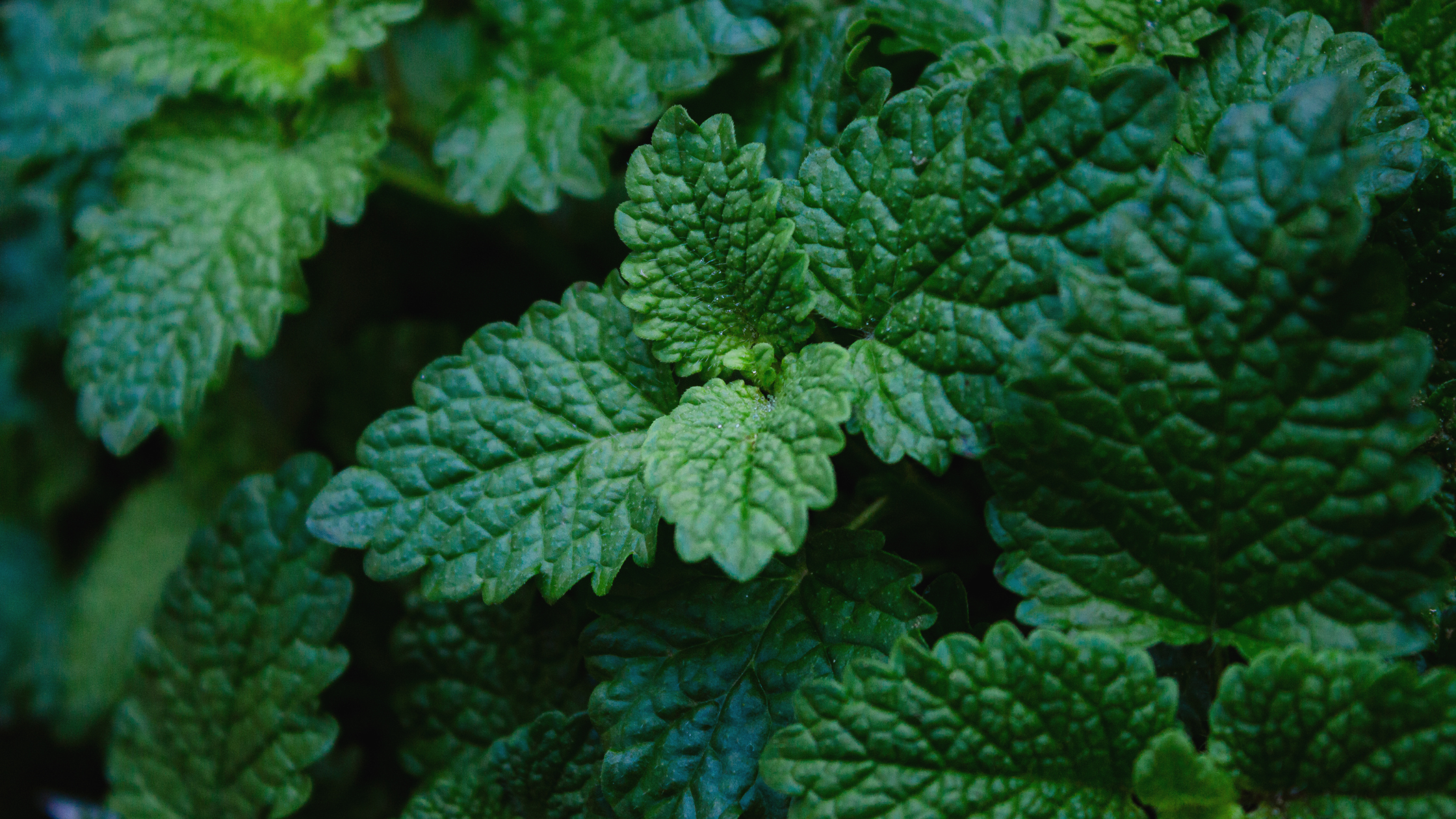
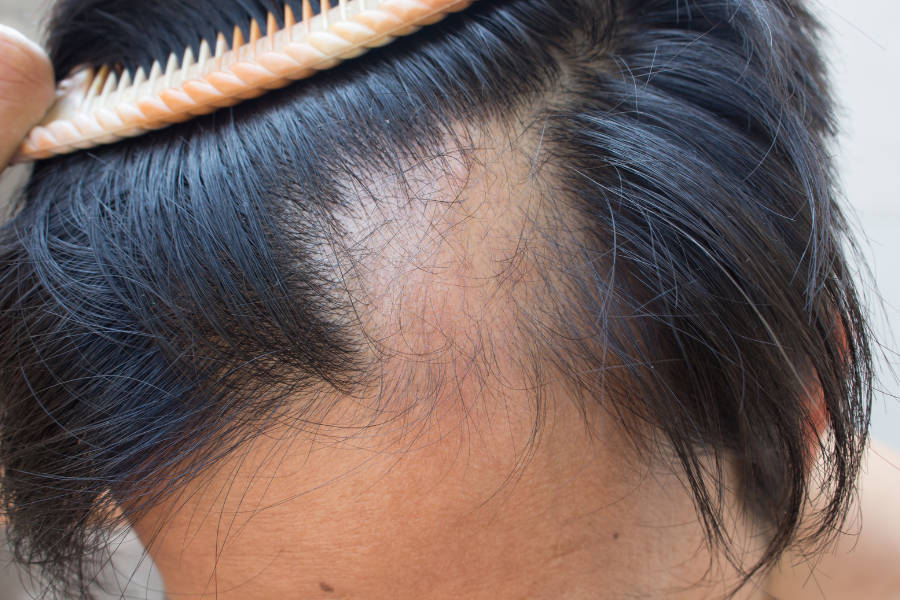
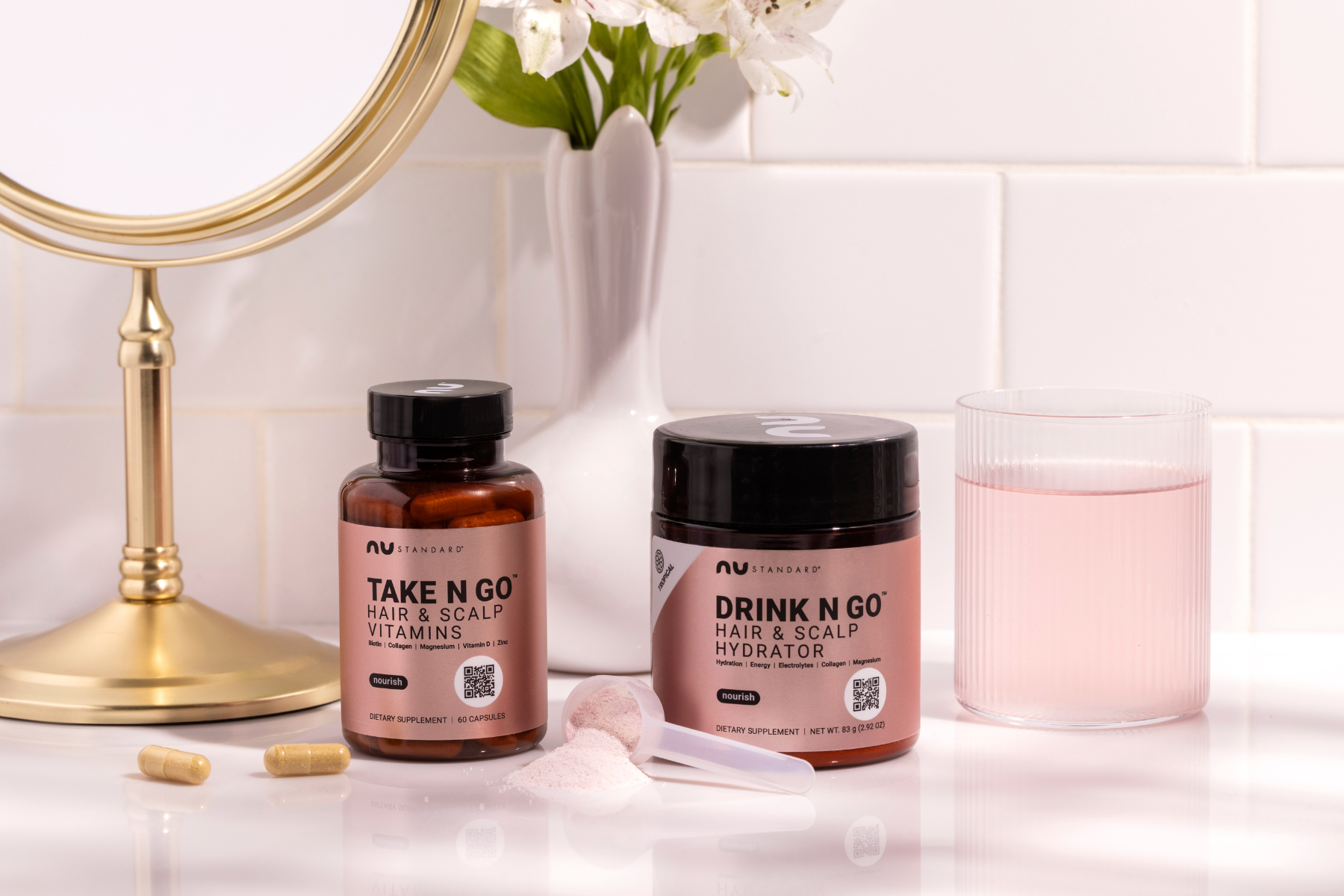
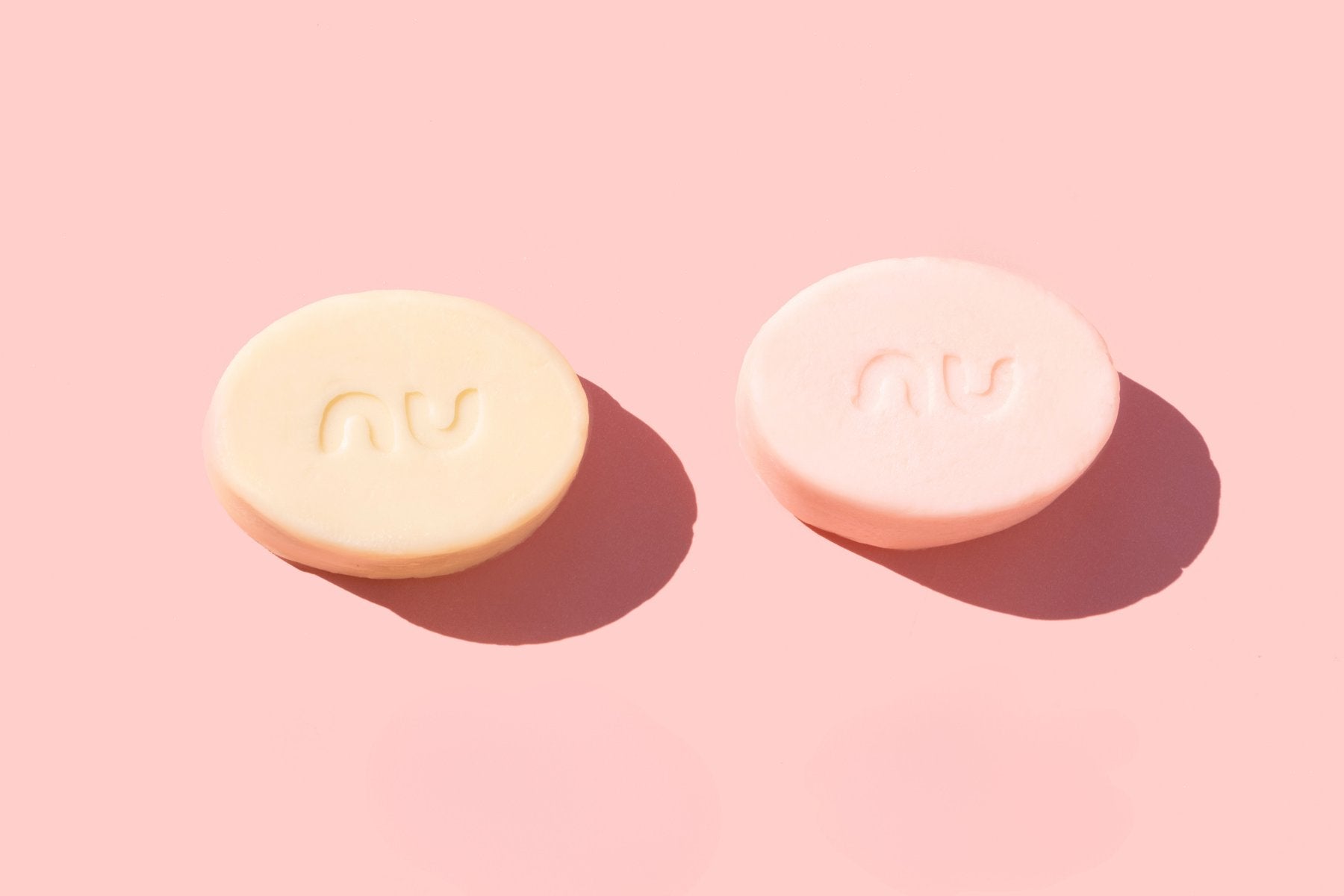

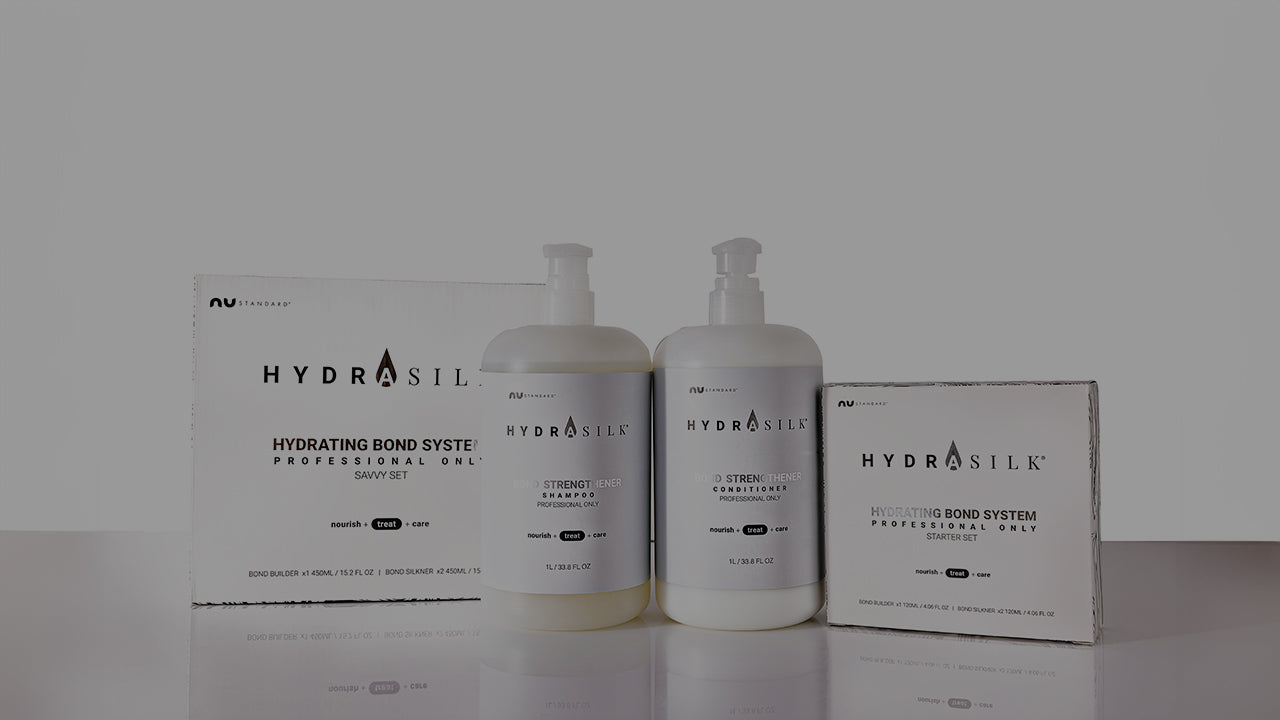
Comments